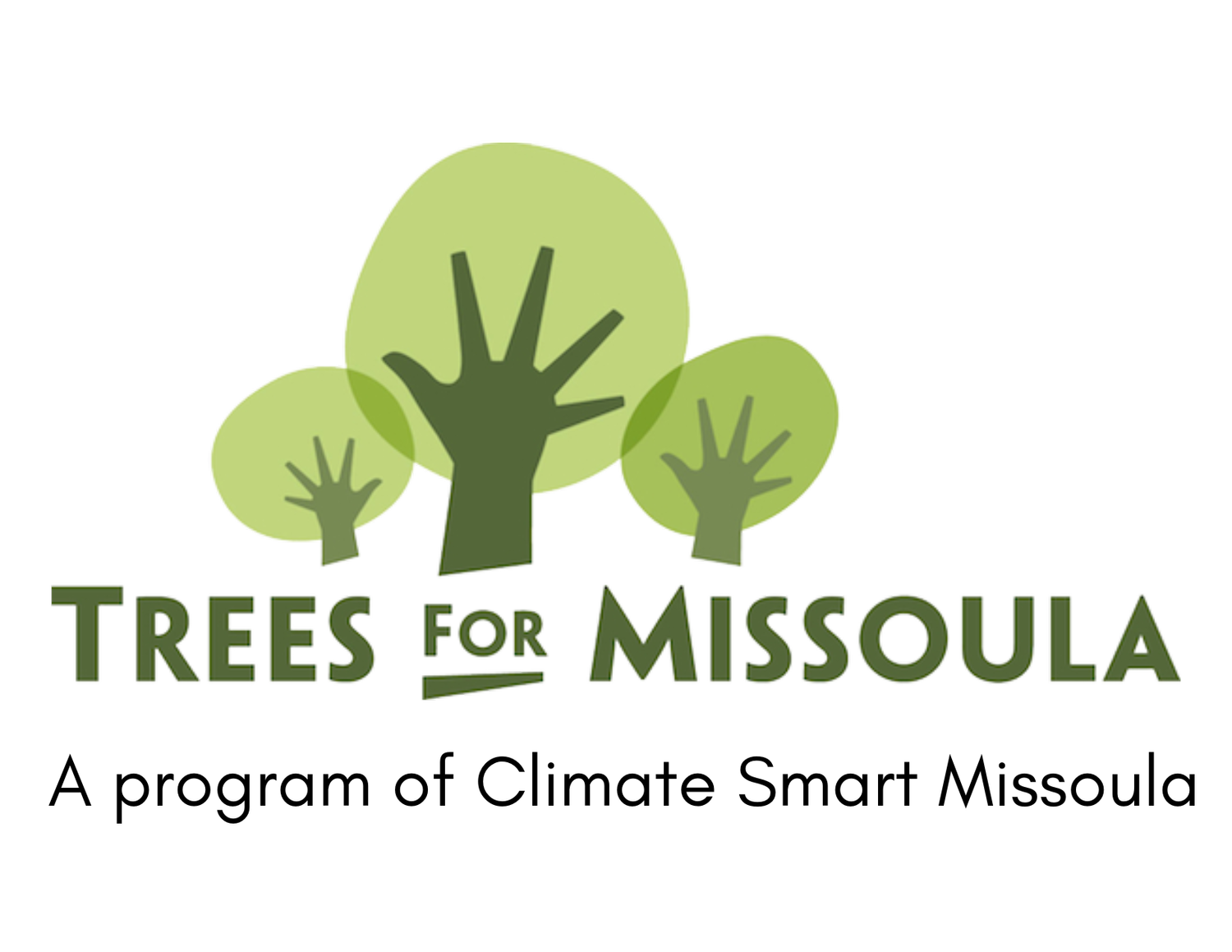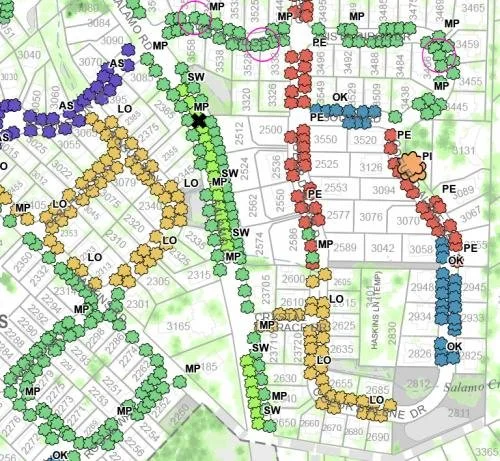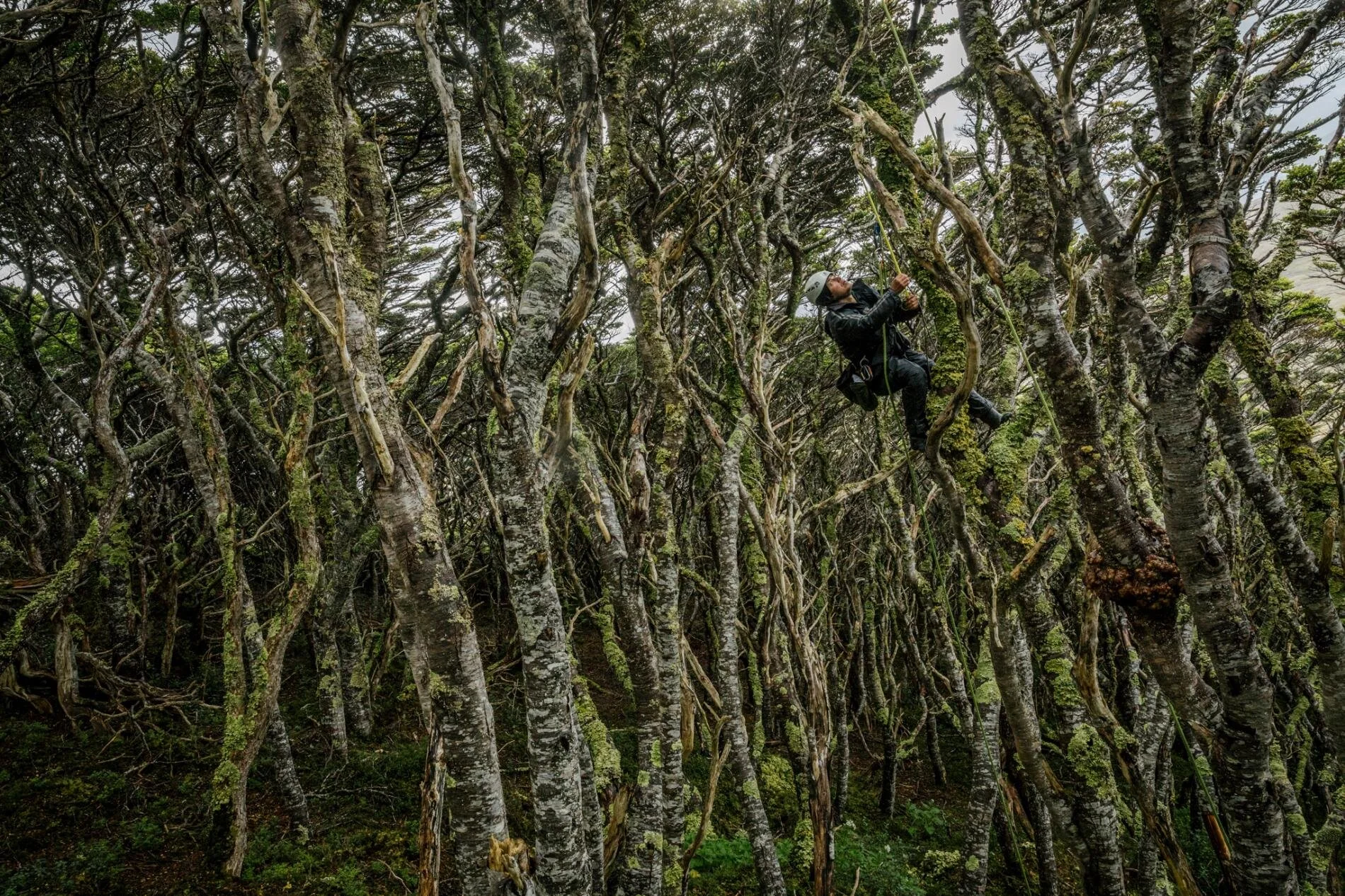Some trees in Melbourne, Australia, had dangerous branches that needed to be trimmed and other issues, prompting city officials to give them ID numbers and email addresses where people could report problems.
Read MoreA tree that has adequate water is more likely to be healthy, and have fewer disease and insect challenges.
Read MoreSupporting a healthy, regenerative, just, biologically diverse and vibrant earth.
Read MorePlanting a tree has always been an act of selflessness, beauty, and optimism. As the climate changes, humanity is finding new seasons of living in balance.
Read MoreResearchers analysed 60 million records of 17,000 plant species in almost 200 New World eco-regions, from 1970 to 2011, to identify a pattern of change in response to heat: a phenomenon called thermophilisation.
Read MoreThe powerful effects of nature are strongest in large parks with more trees, but smaller neighborhood parks also provide a significant boost. Their impact on happiness is real, measurable and lasting.
Read MoreSome have begun watering trees – which would have been unthinkable not so long ago
Read MoreSeven trees sprout on a hillside near the southern tip of South America, above the treacherous swirl of spray where the Pacific Ocean meets the Atlantic.
Read MoreHackney has a more diverse population of trees than any borough in London.
Read MoreThe scene in a tiny pocket park outside Plaza Mariachi here on Nolensville Pike last Wednesday was like a tableau from a Norman Rockwell painting, 21st-century style. Surrounded by signs advertising the Hispanic Family Foundation, Dubai Jewelry, the Dominican Barber Shop and restaurants offering Peruvian, Chinese, Mediterranean and Indian food — as well as a Game Stop franchise and H&R Block — was a small sign that read, “Today: Free trees.”
Read MoreImagine a neighborhood where landscaping comes in the form of vertical gardens bursting with fresh fruits, vegetables, and legumes; where the roads are only wide enough to walk or bike to a friend's house; where you can volunteer at the local community center in exchange for homeowner association (HOA) fee discounts, tracked using blockchain technology, of course. Silicon Valley–based construction company ReGen Villageshas imagined a place like this and is planning to develop the world's first self-sufficient suburb 20 minute outside of Amsterdam in the Dutch town of Almere.
A revolution is brewing in the streets of Cascadia’s major cities. Not since the mid-20th century has this region seen such a wholesale remaking of city rights of way.
Rapid growth is driving experimentation in ways to move more and more people through the same corridors, whether by foot, bicycle, transit, rideshare or private vehicle, all while accommodating a rising tsunami of deliveries. And as as ever more buildings fill urban space, those public rights of way become critically important refuges for greenery.
Read MoreStreet trees are of great value to people living, working, shopping, sharing, walking and motoring in and through urban places. For a planting cost of $250-600 (including first 3 years of maintenance), a single street tree returns over $90,000 of direct benefits (not including aesthetic, social and natural) in the lifetime of the tree. Street trees provide so many benefits to those streets they occupy, that they should always be considered as a default urban area street making feature.
Read More













